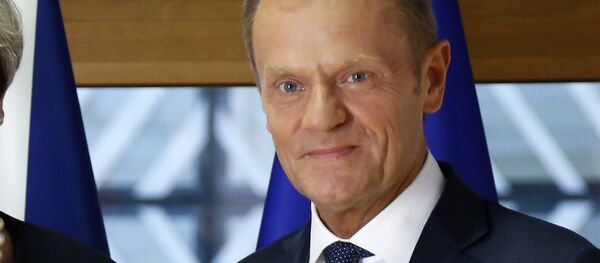Sputnik: It has taken them almost nine months to come to a negotiated agreement, albeit a trade agreement hasn’t even been initiated yet. This is obviously causing a lot of issues with the remaining member states, though some of the regions seeking compensation have been in an economic slump for a few years now. How likely is it that they are using Brexit as an excuse for receiving additional funding?
Patrick Minford: Yes, there will be a big hole in their budget. Obviously, they don’t want the spending to be cut, but actually the spending will be cut and now they are asking for more spending. There will be more spending, I think, to stakeout a position ahead of time when the budget negotiations get going in earnest. As you know, the thing ends in 2020, so they don’t have much time to work out what happens from 2021 onwards.
Sputnik: With this massive financial gap of 10 billion euros, which is 12 percent of the EU budget, it’s a massive hole to fill, and it’s a challenge to the EU, creating a lot of stress and pressure while moving forward in the next few years. Countries are now asking for compensation. Do you think the EU will be able to offer such compensation?
Sputnik: What do you think are the key Brexit gains for the UK in terms of trade, the quality of life?
Patrick Minford: [There will be] big gains from free trade, control over migration, and control of regulation, so that we face less intrusive and excessive regulation by Brussels, but make our own pragmatic laws to deal with our own businesses. This will bring big gains in the order of seven percent of GDP, big gains going forward spread over the next decades making it possible to cut taxes as well and spend more on infrastructure. This is a big prospect and a big revolution in our affairs that will lead us to a much better economy in the long term.
Regions such as Andalusia in Spain and others in Portugal have urged the EU to create a special fund for areas most impacted by Brexit. However, net contributors such as Austria, the Netherlands and Sweden have refused to pay extra to plug in the Brexit hole, leading to cuts in spending.
The demands come as European leaders begin negotiations on a new seven year budget after Brexit and a transition phase,when Britai will continue to pay into Brussel’s budget until the end of 2020.
READ MORE: EU-UK Free Trade Deal Impossible by Time of Brexit — EU Negotiator
The views expressed in this article are solely those of the speaker and do not necessarily reflect the official position of Sputnik.




